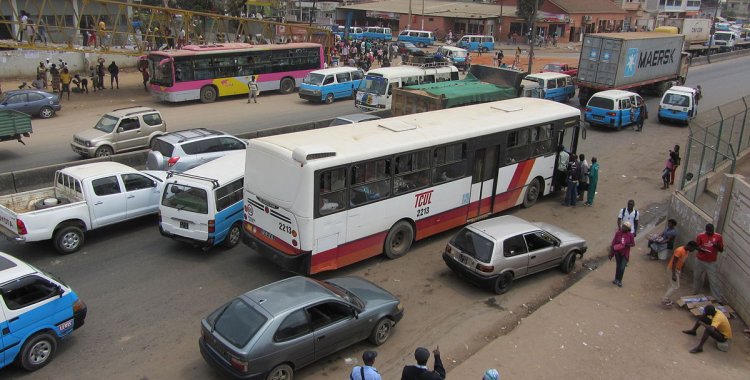The information was provided by the chairman of the TCUL Board of Directors, on the sidelines of the delivery to the Luanda provincial government of 71 new buses, for distribution to the five operators in the market.
Pedro Pereira, in office since 2020, said that he inherited the liabilities of four administrations, noting that after reaching an agreement with the INSS, the company started paying the debt, starting last year, disbursing 10 million kwanzas monthly.
"TCUL had very serious problems from a management point of view. We are talking about problems that I consider to be chronic. It is not possible for you to work and then reach the retirement period and the company owes it to the institute, without being able to actually launch it for retirement the people who gave their lives," said Pereira, adding that the situation affects 148 workers.
According to the president of the transport company, the oldest in the country, the company has a current obligation with the institute of around 18 million kwanzas, so it is a financial effort of 28 million kwanzas.
"TCUL has entered its fifth generation, led by me, two general directors and two presidents of the Board of Directors have already passed through TCUL. The Board of Directors inherited this liability, the important thing is that we are resolving it", he stressed.
Pedro Pereira stressed that as the debt is being repaid, workers who cover the period covered will retire.
According to the official, the company was facing "very serious problems", namely salary delays, with debts of one or two months, a situation that has been regularized since 2018.
"We recognize that TCUL had very serious problems for career progression, there was no occupational qualifier (...), which has already been implemented", said Pedro Pereira, adding that in the absence of the qualifier, the seniority allowance was implemented, which it was also in debt, in the amount of around 400 million kwanzas, equivalent to 33 months.
"Today no one is going to say that the company still owes the seniority allowance, we managed to pay everything," he said.
The chairman of TCUL's Board of Directors admitted that there are still "serious problems of revenue evasion".
"People, some of our employees, workers, use practices that leak revenue into their own pockets. Putting people [on the bus] at the back door," he lamented, citing other practices that harm the company.
"We are closing the circle and having greater control of the means. The ticketing system has made this process much easier. We are putting cameras inside the buses, we have images of colleagues who are taking money for their benefit, there are still workers who they put people through the front door, staying in that space without going through the turnstile, going down through the front door," he denounced.
According to Pedro Pereira, "some people are unhappy with the change of course for better management".
"It's these company control practices that people weren't used to that we have to implement for a healthier company with our benefit, for the worker, for society, for the country," he stressed.
Pedro Pereira, stressing that he inherited "very serious problems" in the company, guaranteed that the solution goes through three phases, the first and current one, of survival, the second, of tranquility, and the last, of growth.
"TCUL has been surviving, it has been dragging its feet, it is TCUL that we have found and we are leading TCUL towards stability. TCUL is in this transition between survival and stability. By stabilizing, we will have to project the company into the third phase , which is growth," he pointed out.
With a fleet of 236 buses, the company employs around 11 or 12 people per vehicle.
"For us to be efficient we have to tend towards this international ratio, it's usually four to six workers per bus, and we have around 11 or 12 workers per bus," he noted.
Carrier TCUL pays off debt of 700 million kwanzas with social security
The public company Transporte Coletivo Urbano de Luanda (TCUL) is paying off a debt of 700 million kwanzas with the National Institute of Social Security (INSS), informed the president of the transport company.







